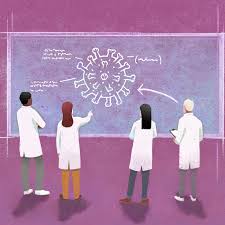What makes someone have lasting immunity to COVID-19? This is a burning question in order to understand how to protect against the virus and sustain immunity. This also has implications for the various vaccines that are either in development or in testing phases. We often hear about antibodies. Never before has the world learned so much about immunology and everyone’s medical knowledge in this area is being tested. Antibodies which have usually been discussed scientifically or medically are now part of the household vocabulary.
In terms of COVID-19, we often hear about antibody immunity, but the level of understanding of how long someone needs antibodies to be immune to the disease or if other mechanisms of immunity exist are not well understood. What is mostly being assumed is that if one has been infected and recovers from the disease, then one must have a high level of antibodies to COVID-19 in their blood. What remains mysterious is how long that immunity lasts for survivors. Also, what is the possibility one could be artificially made immune to COVID-19 by being given antibodies through convalescent plasma or through vaccination?
Immunity has just focused on antibodies. What about other mechanisms produced by the immune system to stave off the virus? Other responses could include those from memory B cells, CD4+ and CD8+ memory T-cells. These latter responses could produce longer lasting immunity than that seen by neutralizing antibodies, which tend to be higher after initial infection but dissipate over time. Vaccines in development are trying to initiate high titers of neutralizing antibodies but also potentially bring about long lasting immunity like that through memory B and T cells. So far the vaccines being tested have been able to initiate strong antibody response.
Written by Usha Govindarajulu
September 29, 2020
Amanda Northrop/Vox; Getty Images
